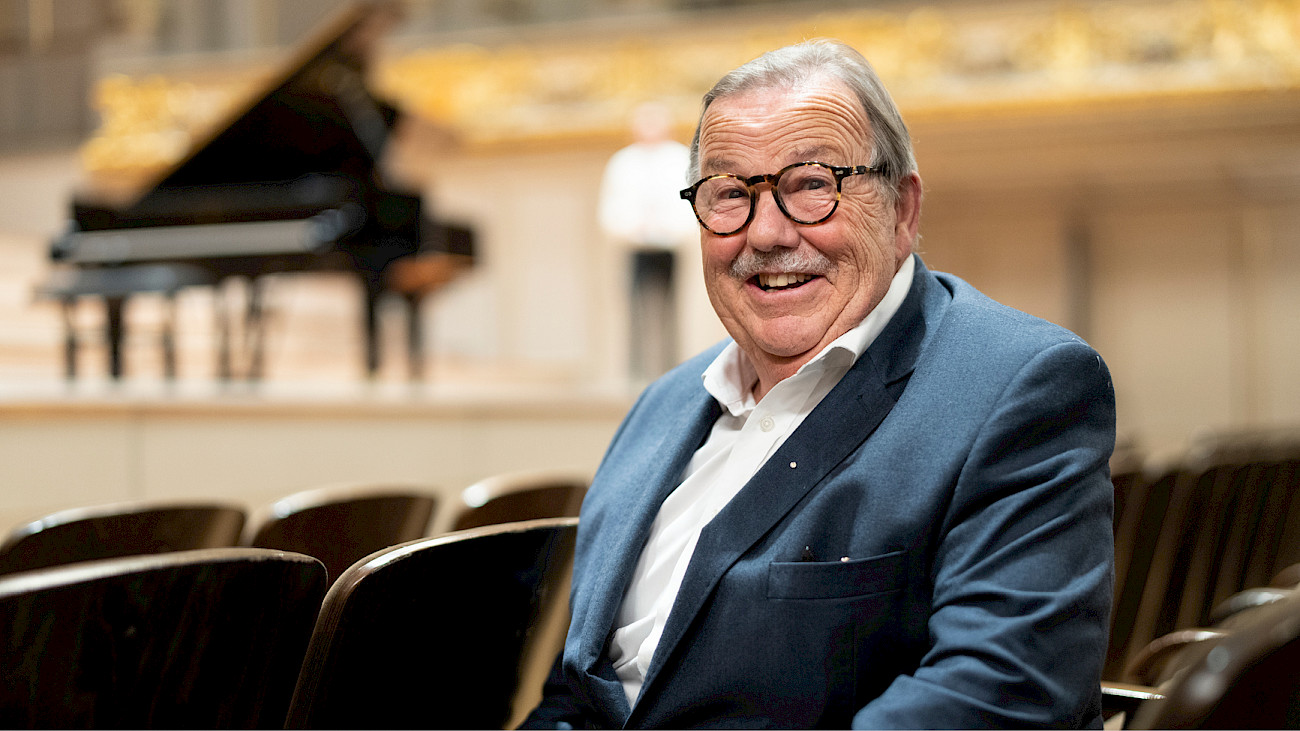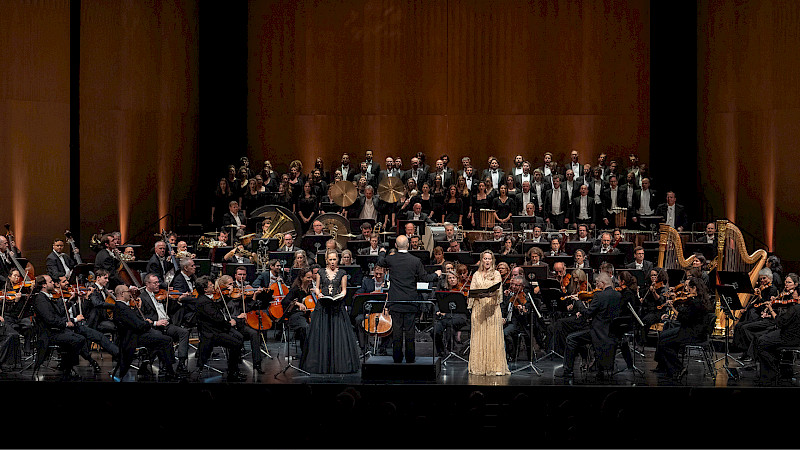
The two hearts of a cardiologist
When the Tonhalle Orchestra Zurich goes on concert tour, over 100 people experience an intense time. It's a good thing that tour doctor Michel Troesch has a lot of experience with people, musicians and his oboe.
Mr Troesch, ..
My name is Michel for everyone involved with the Tonhalle-Orchester Zürich.
You are a doctor, but music has always played a major role in your life. What came first?
There are two hearts beating in my chest. I'm a cardiologist and a passionate amateur musician. Even during my training, I wavered between medicine and music. I initially studied oboe at the Paris Conservatoire. During my studies, I realised that you have to be very, very good to be really successful as a musician. I wanted to have a secure foothold professionally and decided to study medicine.
These are very different professional fields. Why medicine?
I was influenced by my mother, who was a doctor. I initially wanted to become a paediatrician, but then I was drawn to cardiology. I took the opportunity to play a lot of music throughout my medical studies because amateur oboists were needed. While I was studying in Basel, for example, I was a member of the Freiburg Baroque Soloists. I still play the oboe today, as well as the bassoon and recorder, and I occasionally have lessons with musicians from the Tonhalle-Orchester Zürich. That's marvellous.
How did you manage to combine music and your busy job?
I always had difficulties assessing myself. That's why I always put a lot of effort into my medical studies. I often thought I would fail the exams, but I always did very well. It's actually still the same today, I prepare myself very thoroughly, both when making music and in my work as a doctor. When I do something, I do it properly.
As a musician, you would have chosen a profession that requires a great deal of personal responsibility in terms of health and rehearsals. As a cardiologist, you are responsible for others, your patients.
Medicine is intuition. You can acquire a lot of theoretical knowledge, but if you don't have any intuitive skills, you won't become a really good doctor. Today, too many multiple-choice questions are asked in all medical exams and the clinical judgement of a patient is lost. The clinical view and years of experience are very important in everyday working life. As you get older, you realise that everyone is an individual. This is especially true for musicians. You have to have the gift of being able to empathise with these highly sensitive people. As a doctor, it helps me a lot that I have an affinity for music myself. I've also always found it easy to communicate with people, especially musicians.
How did it come about that many musicians became patients of yours?
I had my own cardiology practice in the Dr Andres Apotheke Stadelhofen building, very close to the opera house. I also knew many patients from the opera house and the Tonhalle Zurich through my music-making. A world-class pianist once came to my practice. I was in awe and couldn't speak a sentence. The pianist then managed to break the spell.
You're in your prime retirement age, but you're still working. Why is that?
I actually wanted to stop at the age of 65. Then a friend, who was also my patient, told me: "You've saved my life. You have to keep working! I'll offer you a room in my carpentry workshop. The two of us will set up an AG." Today, I'm the head doctor at Cardiac Consulting AG and my boss is a master carpenter. I decide which days I work and how much time I take for my patients. That's important to me. I also hold management positions in various clinics.
And how did you come to be the orchestra's touring doctor?
My wife and I once wanted to take part in a concert tour as visitors. I know Martin Vollenwyder, the Chairman of the Board of Directors, very well. One day he called me and asked me if I could join him as a tour doctor. I took a defibrillator and an ultrasound machine with me, neither of which I ever needed. I learnt more about general medicine on that tour than I did about cardiology at a cardiology conference.
If you were to advertise for the job of tour doctor, what would the profile look like?
You have to have a great deal of empathy. You have to be able to differentiate between real emergencies and less important emergencies. You have to be able to make decisions quickly, organise well and, above all, communicate well.
I can remember concert tours where the doctor was in great demand.
Yes, that's true. The musicians have to perform at their best under intense conditions. Tours are incredibly stressful for them. There are over 100 people on the road, and if one of them comes down with a fever, you fear that several will catch it. We exchange ideas for decision-making. And not a day goes by on tour when you don't have to make decisions.
On an intensive tour lasting several days, the relationship between closeness and distance is a fine line. And it's part of your job to have a keen sense of this tension. How do you deal with it?
It's not my style to act like a doctor in a white coat. I never did that when I had my first practice. I think that I have a natural authority and that musicians wouldn't appreciate distance at all.
Where are you during the concerts?
I've always been in the concert hall. And the things I need are in a room in the concert hall that I set up as my treatment room. At the concert, I have a rucksack with the most important medication with me, and sometimes I'm on pins and needles. It's usually minor complaints such as hoarseness or a cough. My job is to calm them down, knowing full well that some medicines don't work within a few minutes. So far, it has always worked well.
What does this responsible task mean to you?
I have now been on two European tours and one Asian tour as a doctor. These were wonderful experiences and the job gives me a lot. I have also built up a new circle of friends through this work: I recently played Bach's Brandenburg Concerto No. 4 for two recorders with Michael Reid, the principal clarinettist of the Tonhalle-Orchester. The performance was conducted by principal trombonist David Bruchez-Lalli. I also played in the audience orchestra for the first time: I played the first oboe in Jacques Ibert's flute concerto, a very difficult piece. Now I'm looking forward to the next tours!





